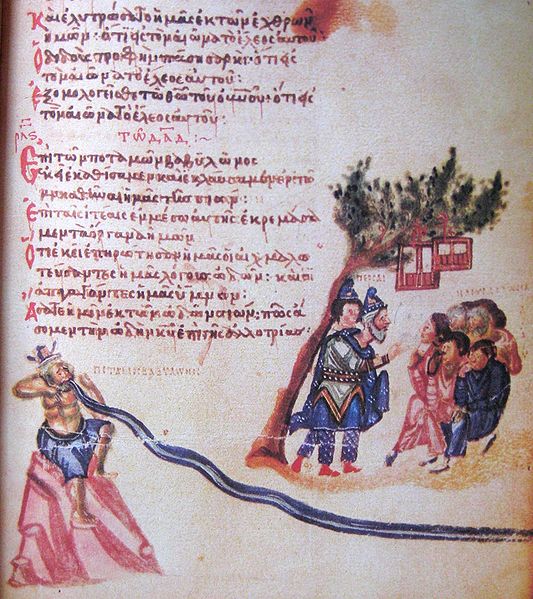Care, Discipleship, and Gratitude – by Miriam Spies
Theological Reflection – Sunday April 7, 2013
Miriam Spies, an M.Div student at Emmanuel College and candidate for ordained ministry in the United Church of Canada, completed her Contextual Education internship at KAIROS in the 2012-13 school year. As this time came to a close, she shared this reflection with the staff.
Well, it’s hard to believe that the year is quickly coming to an end. A few more papers, a few more days with KAIROS, a few more classes … and the journey of Holy Week in the middle (not good planning for deadlines for sure!). Busy times. But, look who I’m talking too – it’s clear that you folks understand the ever-going task list, program plan, and future actions to prepare for! The culture we are in enforces this hectic lifestyle too – sometimes we even say that life gets in the way of work.
So, when working towards goals, how do we slow down, find and speak of God in the midst of this? How do we nurture our relationship with the Holy? And how does all this happen in an ever-growing secular, post-Christendom culture? I don’t have the answers, but I have some thoughts to offer. I want to speak about a few things today: spiritual care, acts of discipleship, and gratitude.
When I began to think about this reflection, I came across two scriptures. The first comes from the psalms. The psalmists are known for their cries to God, times when they were suffering and oppressed, times calling out for justice, and times when they felt their voices were silent. The writer of Psalm 137 presents a lament over the destruction of Jerusalem and their exile:
By the rivers of Babylon—there we sat down and there we wept
when we remembered Zion.
On the willow there we hung up our harps.
How could we sing the Lord’s song in a foreign land?
Maybe we could ask the same question today: How can we sing the Lord’s song when secular trends seem to be pointing us a different way? A favourite theologian, Walter Brueggemann, says that the church seems to be confused in this “new world.” Churches are more worried about finances, anxious about survival, and are forgetting how to move from denial and despair to hope and newness of life. He calls this a “time of dislocation.” How many of our member churches are in a time of decline, of dwindling resources, and numerous cutbacks? We are stuck in despair, unsure about the future, preoccupied with worries and make-shift solutions. It can be hard to name God at work in all of this. It may be a challenge to cultivate a relationship with the Holy when there is so much change happening, plenty of work to do, and society asks us to sing a very different song. It’s a new land, one where we are still finding our grounding in, and one where we may be tempted to hang up our harps altogether.
Brueggemann writes that the stories of exile might be a resource to move us from despair to possibility. They remind us that no matter how far away we may feel, the mystery of God cannot be destroyed. It takes a good deal of faith to imagine the possibility of a new future, alive for us. But, as Christians, we know how to live in hope, how to recognize abundant life, how to continue to sing God’s praises. And so, we are called to imagine, encourage, and support a new vision – one where God’s kindom can come about. It is choosing to pray, speak, and act in ways that may seem against the grain. We will name our prayer and work in love and service of God. In doing this, we must sing and play our harps, traveling away from the weeping rivers of Babylon into the hope of tomorrow.
I think how we offer this song begins with an examination of ourselves and then extends into communities. Listen to Jesus’ story of building on rock and on sand:
“Everybody who hears these words of mine and puts them into practice is like a wise builder who built a house on bedrock. The rain fell, the floods came, and the wind blew and beat against that house. It didn’t fall because it was firmly set on bedrock. But everybody who hears these words of mine and doesn’t put them into practice will be like a fool who built a house on sand. The rain fell, the floods came, and the wind blew and beat against that house. It fell and was completely destroyed.”
We often use this text to encourage action – not only to have faith in God but also living out that faith through acts of discipleship. A good forward-looking, goal-oriented text. A great KAIROS text. Today I invite us to take a different look. The message here is that discipleship occurs in the everyday practices of Jesus’ followers. Our love for and commitment to God must be accompanied by a life that honours God. We are invited to an encounter with God and a different way of living.
For me, a strong foundation requires both. I know I struggle with this balance. I have a deep passion for activism, for caring with and for others, and for living and loving in community. Sometimes I can get so focussed on goals, on deadlines and responsibilities that I don’t take time for my own spiritual practices, I forget to nurture my foundation – my relationship with God. When this happens, the world looks a bit differentand my energy towards the work changes. I wonder if part of my foundation becomes like sand andmy relationships/work/life faces a stumble.
This has been called activism fatigue too. Jesus recognizes this weariness, reminding us of the ground we are standing on, the ground that needs to be nurtured and loved. When I take time for my worship and prayer life, nurturing my relationship with God and my heart that fuels my passions, I feel more grounded and able to act out discipleship. I wonder how you feel nurtured in your foundation as people called to this work, as a community of disciples in the world. Perhaps I will leave you to ponder and discern this.
Finally, I need to offer my deep gratitude for welcoming, teaching, and inspiring me these past months. It has been a privilege to work with you. I have been encouraged by your “fierce patience” and deep commitment to this work. I know that at times, the struggles facing partners and members feel unending. Thank you for continuing to raise up voices, call for transformation, and name all peoples as neighbours deserving of our love and God’s love. This time with you has helped build my foundation as I discover what ministry I can offer to the world. I pray that God continues to invite and support us all in this work of singing God’s praises and building a strong foundation where the kindom of God will flourish. Amen.










